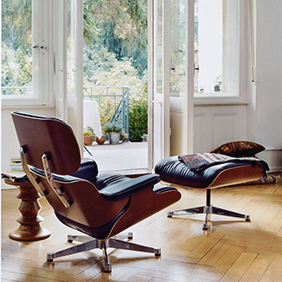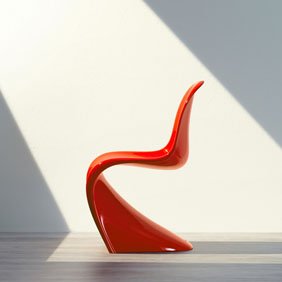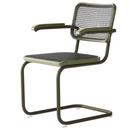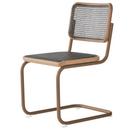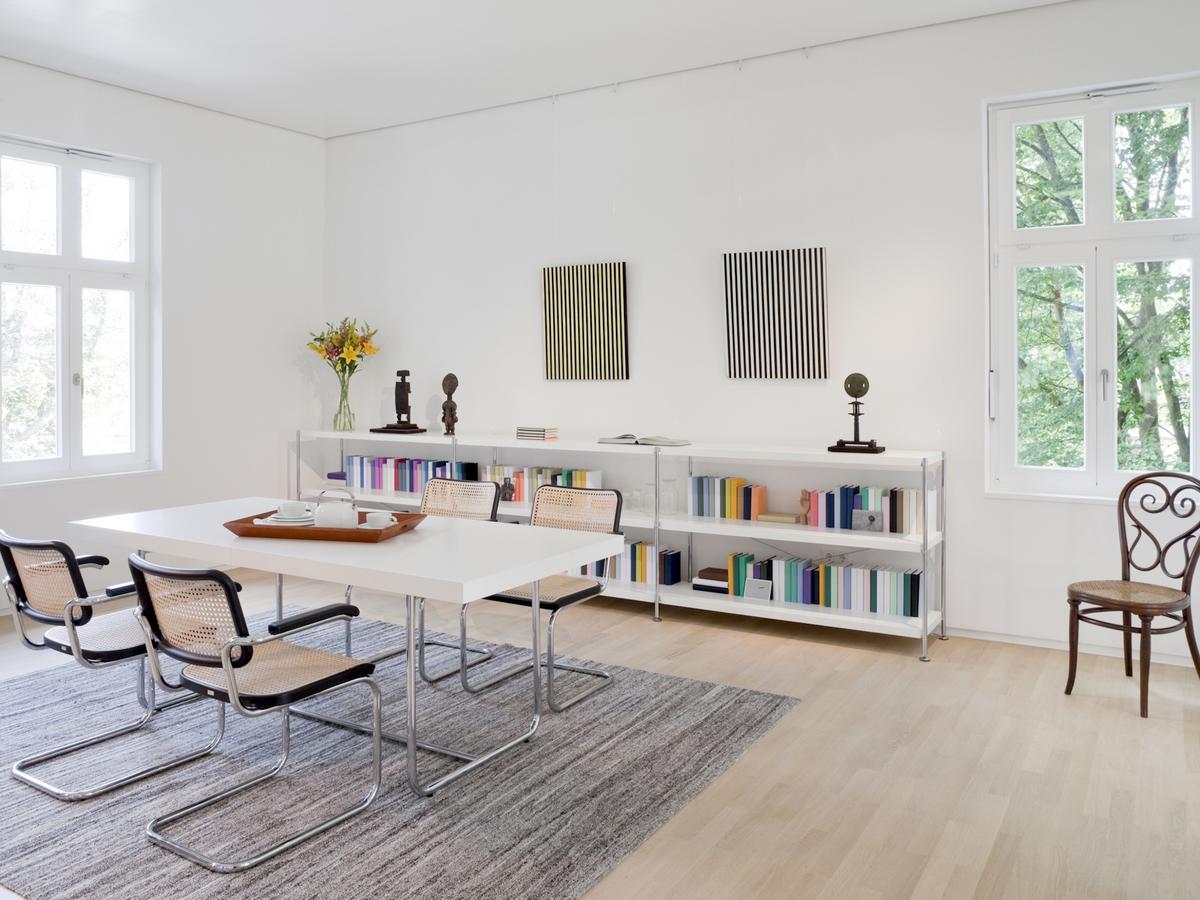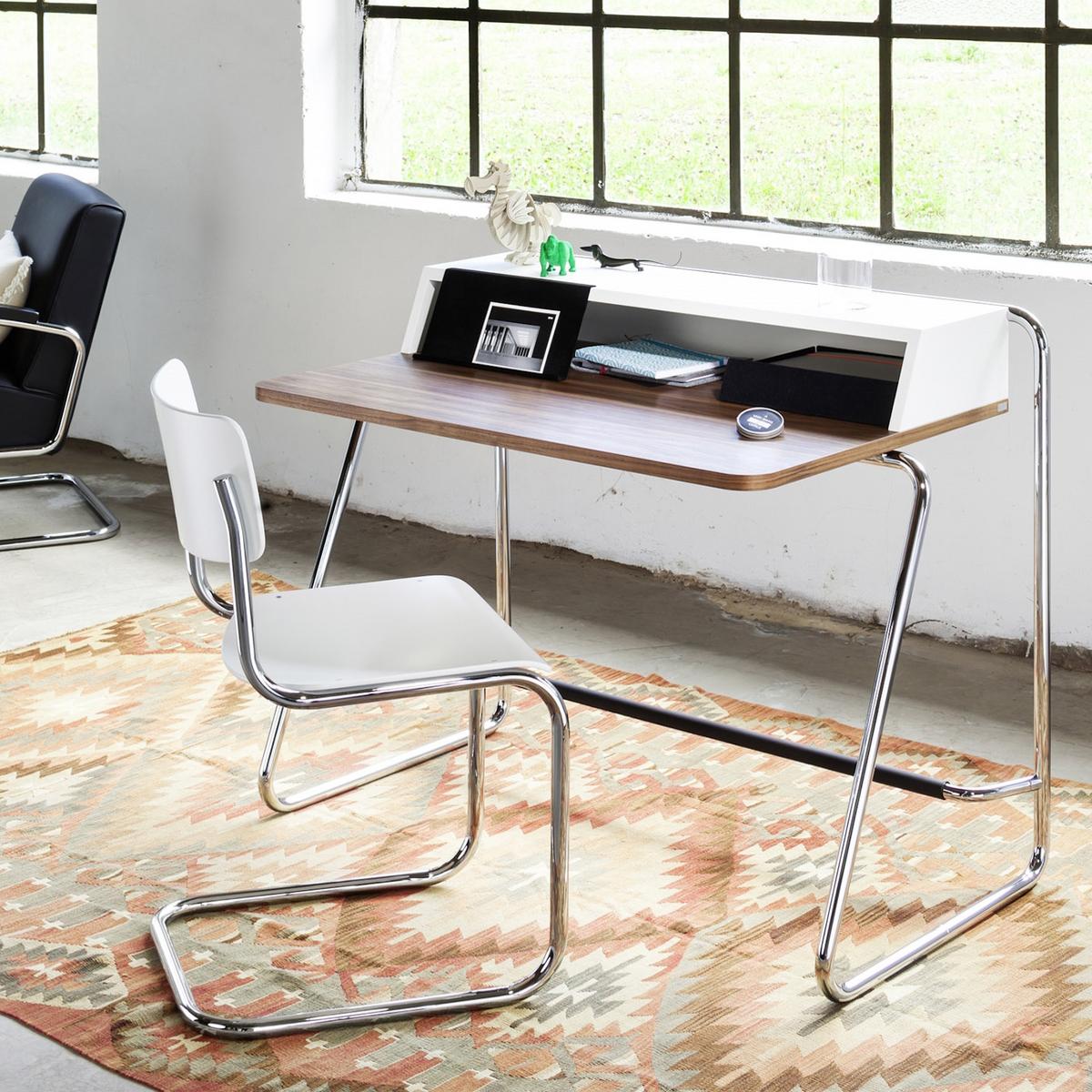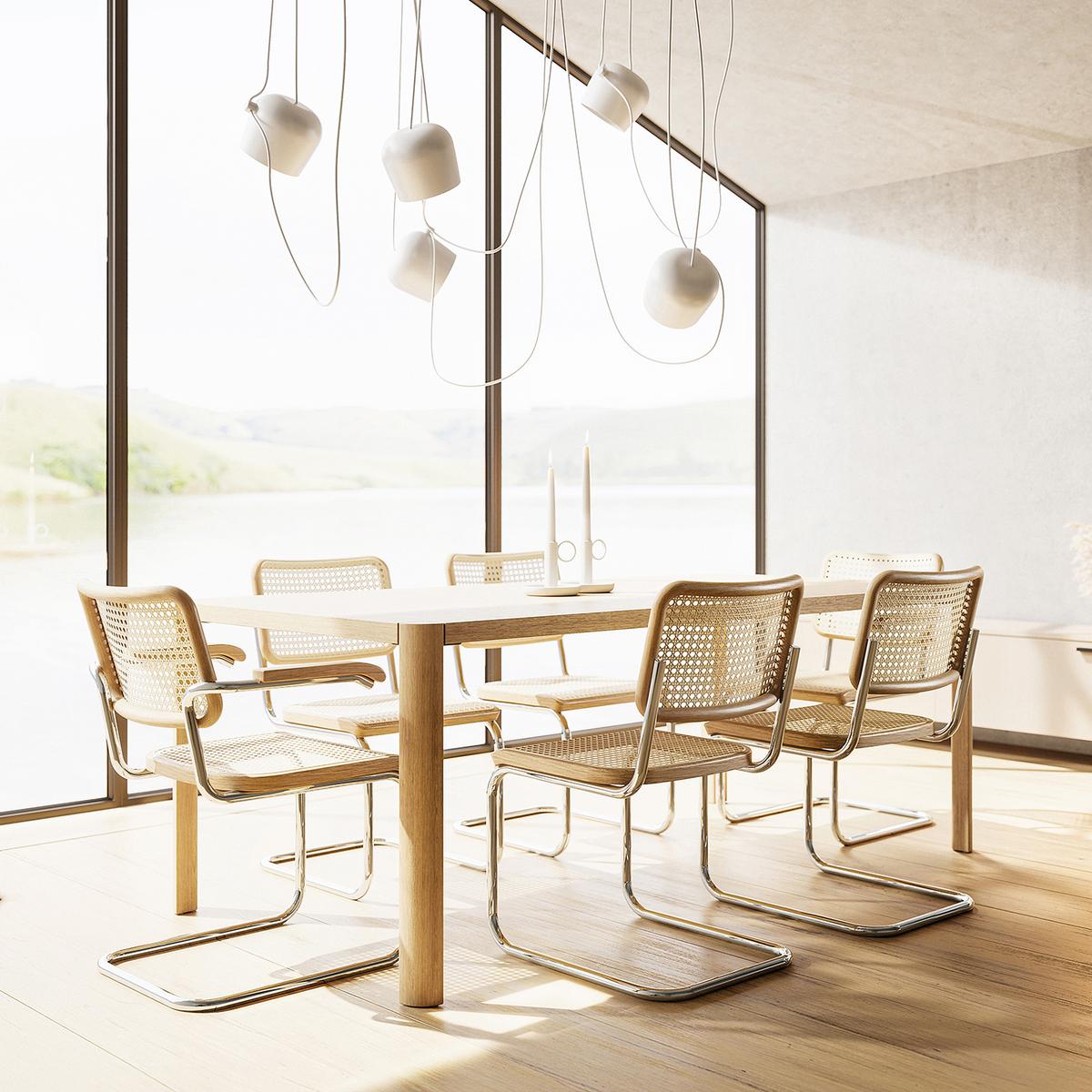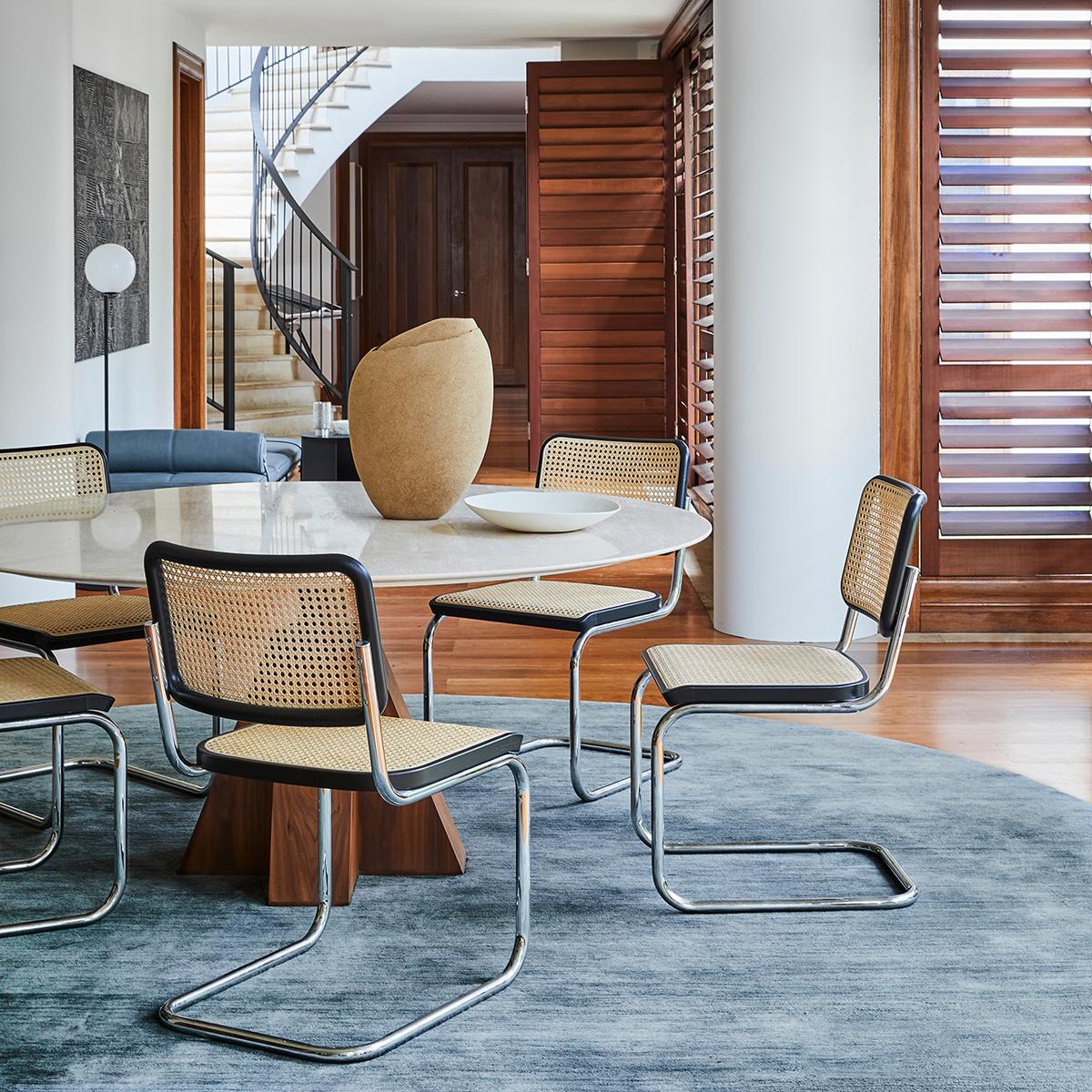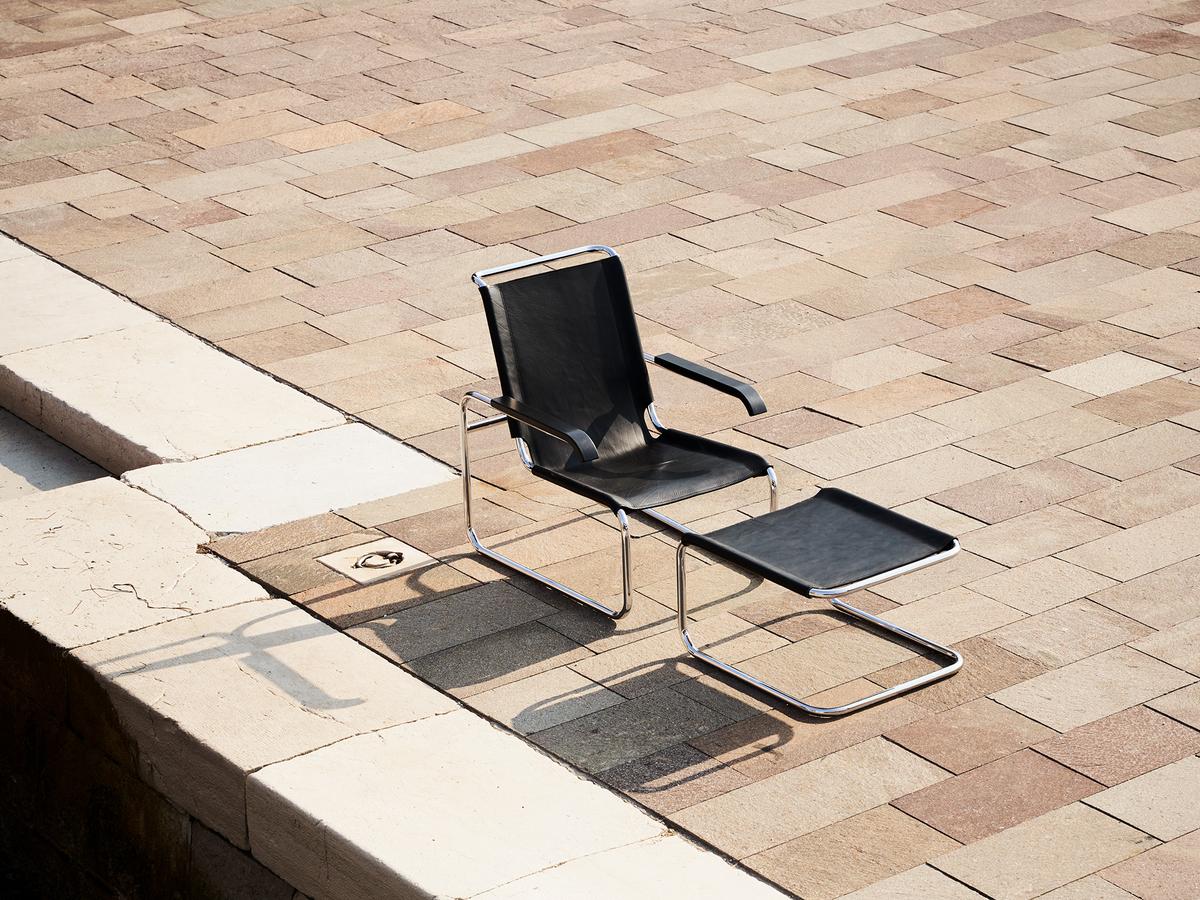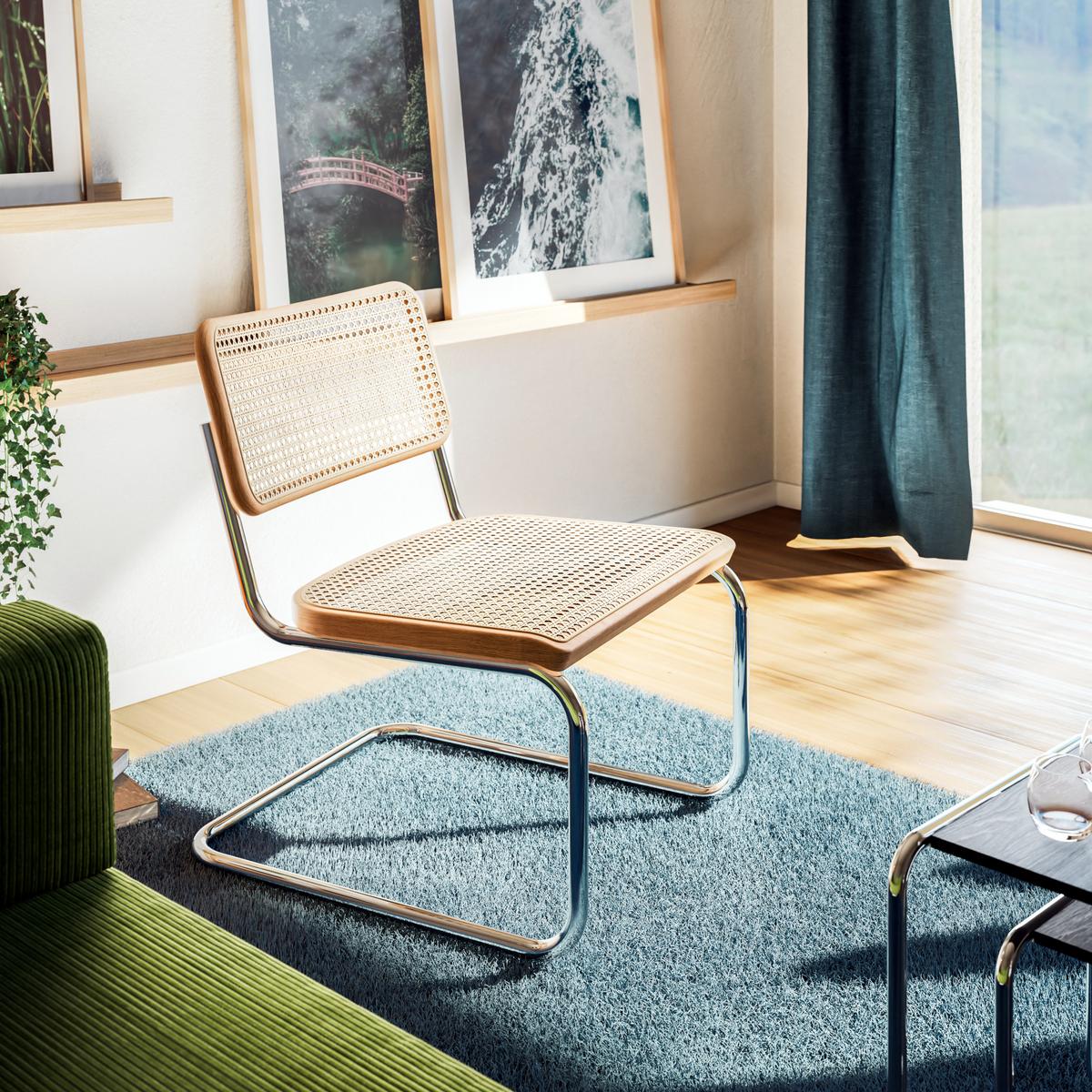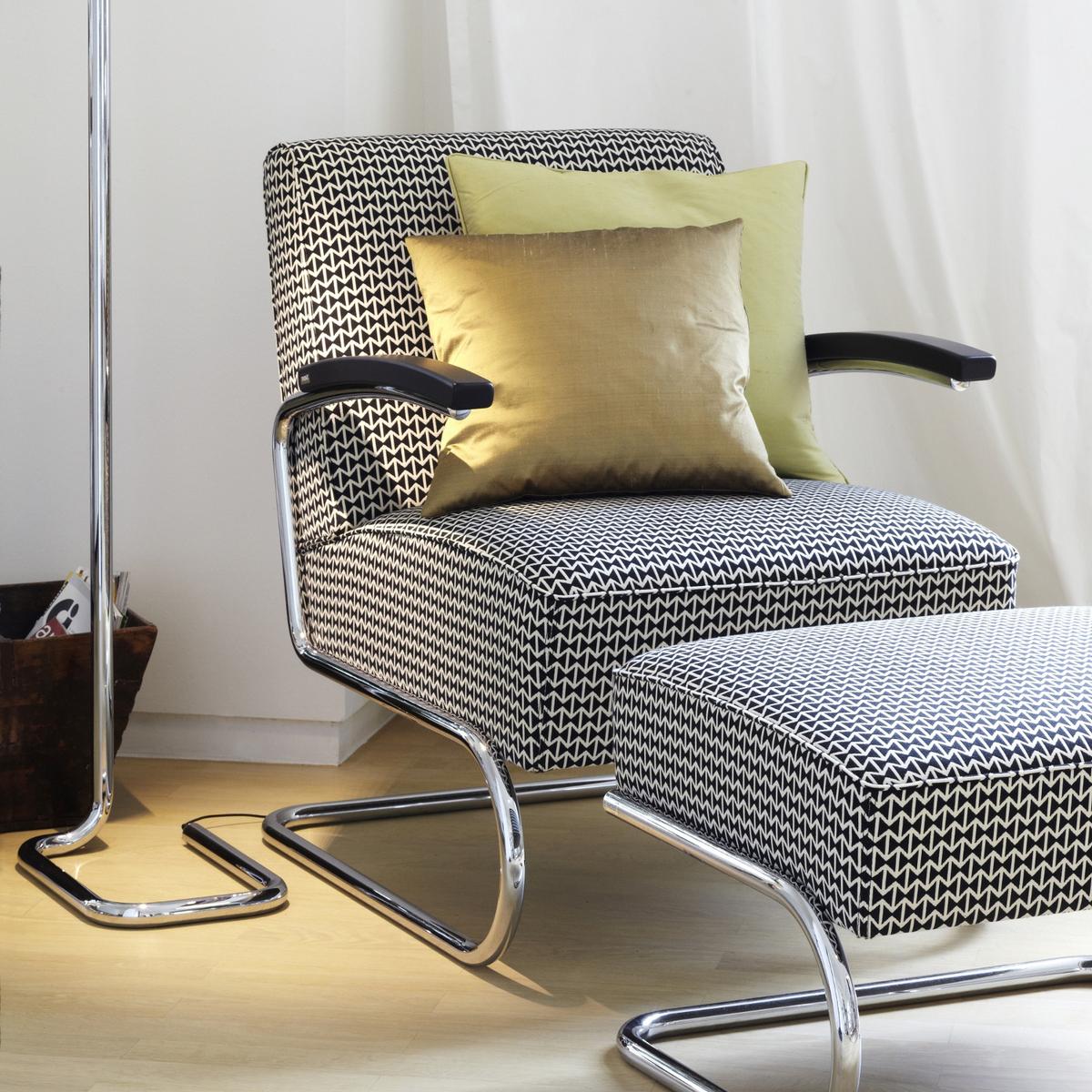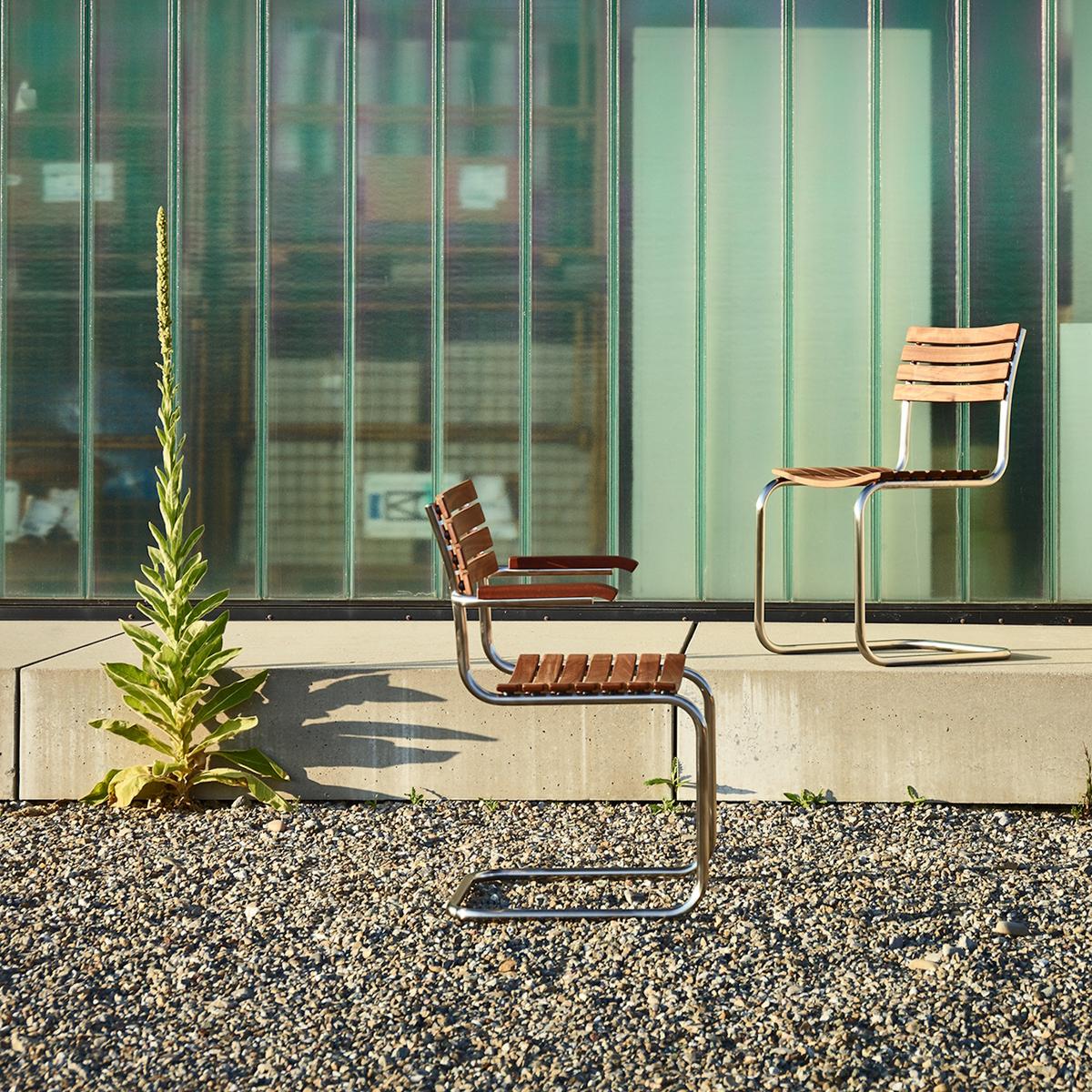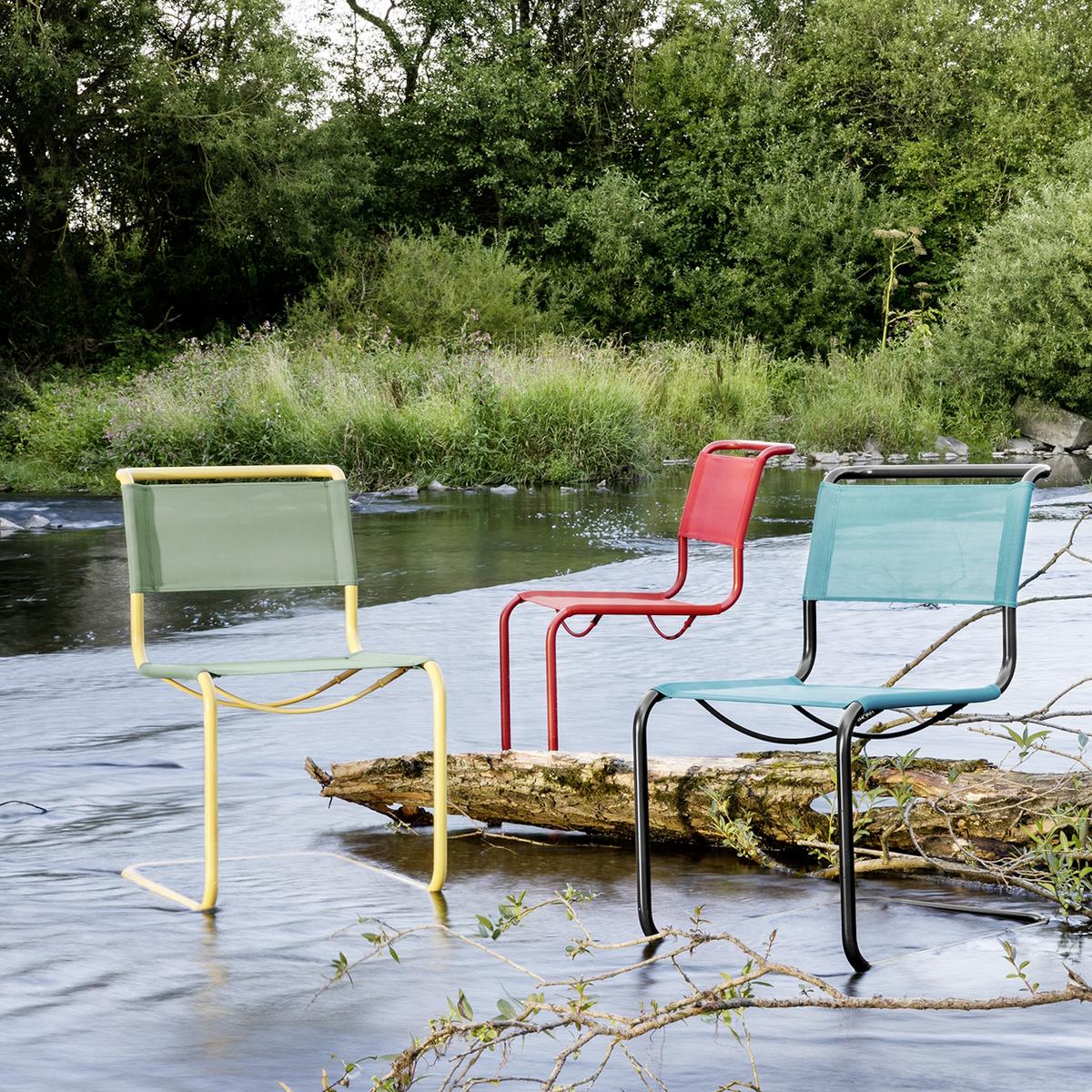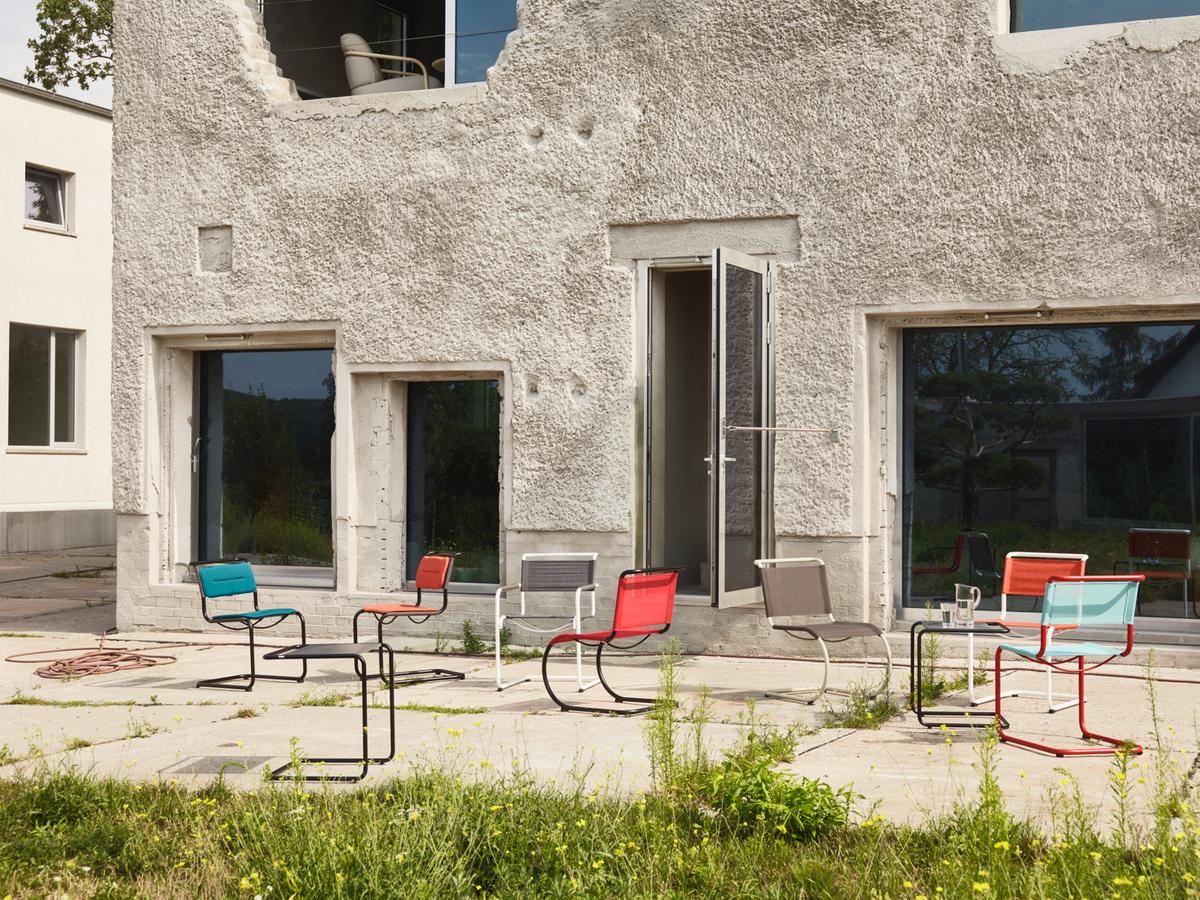Thonet Cantilever Chairs
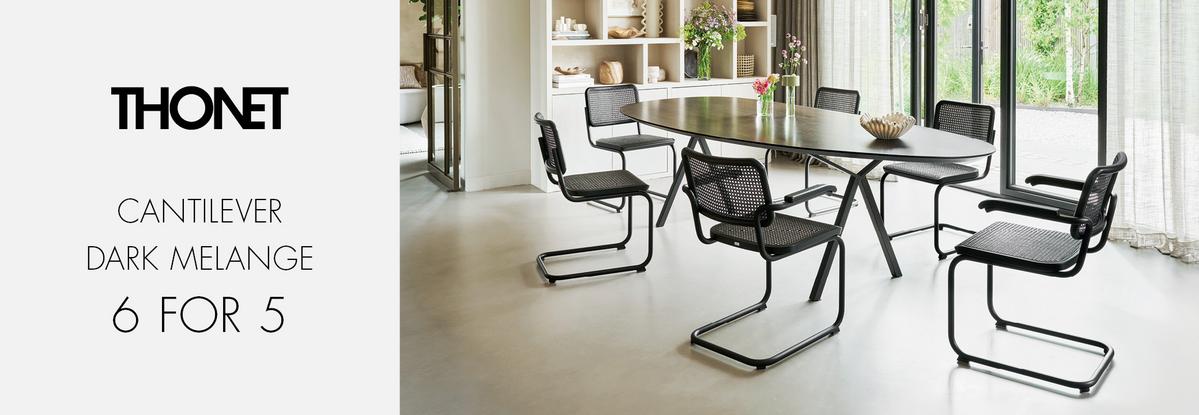
Dine in style with Thonet: Six chairs for the price of five
Redesign your dining area with the Dark Melange Edition of the popular Thonet S 32 and S 64 cantilever chairs. Buy five Thonet Dark Melange chairs before December 31st 2024 and receive a sixth as our gift to you! Simply place your six favourites in your shopping basket and the discount for the cheapest chair will be automatically applied.*
* The promotional discount is a component of the overall purchase contract, in case of cancellation all further responsibilities are regulated by our terms and conditions.
Timeless chair designs from the Bauhaus era: Thonet cantilever chairs
At the end of the 1920s chairs underwent a rebirth: the Dutch architect Mart Stam designed a steel tube chair with no back legs and a cantilevered, resilient, seat, a two-legged chair whose stability is guaranteed by the base meandering on the floor; a design and construction principle that was taken up by contemporaries including Mies van der Rohe and Marcel Breuer and of which Thonet became an early adopter and leading, and genre defining, manufacturer.
A construction and design principle subsequently employed by Thonet for stools, armchairs, and sofas, works that today are available with leather covers, mesh covers, wickerwork or upholstery. For hard floors it is advisable to choose Thonet cantilever chairs with felt glides. Thonet tubular steel chairs can also be used on carpeted floors without felt gliders.
► MART STAM, MARCEL BREUER AND LUDWIG MIES VAN DER ROHE - THE DESIGNERS OF THE THONET CANTILEVER CHAIRS
► S 43, S 32 AND S 533 CANTILEVER CHAIRS - ONLY ORIGINAL FROM THONET
► WHAT DO THE NUMBERS IN THE THONET CANTILEVER CHAIR NAME MEAN?
► THONET CANTILEVER CHAIR AND THE QUESTION OF AUTHORSHIP
► HOW DO I RECOGNIZE AN ORIGINAL THONET CANTILEVER CHAIR?
► THONET CANTILEVER ARMCHAIRS
► NEW MATERIALS AND COLOURS FOR THONET CANTILEVER CHAIRS
Mart Stam, Marcel Breuer and Ludwig Mies van der Rohe - the designers of the Thonet cantilever chairs
Thonet currently produces the S 32 cantilever chair by the Bauhaus student and Meister Marcel Breuer, the S 43 by Mart Stam and the S 533 by the last Bauhaus Director Ludwig Mies van der Rohe.
S 43, S 32 and S 533 cantilever chairs - only original from Thonet
Mart Stam and Marcel Breuer developed the original Thonet cantilever chairs S 43 (Mart Stam) and S 32 (Marcel Breuer) in the late 1920s; the first models by Mart Stam and Ludwig Mies van der Rohe being presented in 1927 at the Weissenhofsiedlung building exhibition in Stuttgart. Marcel Breuer's design of the S 32 followed in 1928/29. The chairs S 32, S 43 and S 533 have been produced by Thonet since the early 1930s and today are only original if Thonet products. Thonet also offers variants with armrests in the form of the S 43 F and the S 64.
What do the numbers in the Thonet cantilever chair name mean?
Michael Thonet named his first chair No.1. Since then, all Thonet chairs, with exceptions, have been numbered in sequence. The prefixes provide information about the respective material: chairs without a prefix are made of wood, such as the bentwood chair 214/214 M, which was originally known as Chair No.14 or the Coffee House Chair. The S in the S 32 and the S 64 stands for steel/steel tubing.
Prefix and material for Thonet cantilever chairs
► No prefix = made of wood► S = tubular steel
The suffixes also indicate the respective variants. For example, F stands for Fauteuil (French for armchair), L stands for lounge and thus refers to the variants with a low seat height and deep seat, such as the S 35 L armchair and the S 32 L. The S 32 by Marcel Breuer is also available as the S 32 N with a seat made of mesh covering instead of the classic cane weave, which as with classic wood is given no special denomination.
Suffix and variants of Thonet cantilever chairs
► F = armchair► PV = upholstered variant
► V = reinforcement fabric
► L = lounge
► K = children's chair (or knot or body)
► N = mesh fabric
► P = upholstery
► LV = leather variant
► H = stool
Thonet cantilever chair and the question of authorship
In 1926 Mart Stam created a chair with no rear legs and a cantilevered seat from gas pipes and connectors, a design he subsequently translated into steel tubing, reinforcing the bends with iron inserts. A design Ludwig Mies van der Rohe saw in the same year and which he reinterpreted with curved, flowing, front legs; a formal variation that highlights differences between Stam and Mies van der Rohe at that period.
Both Stam and Mies van der Rohe's cantilever chairs were presented at the 1927 Wiessenhofsiedlung exhibition in Stuttgart, whereby Mies van der Rohe's use of a slightly wider diameter steel tubing, which didn't require the iron reinforcements of Stam's design, meant his cantilever featured the characteristic resilience of steel tube cantilever chairs; a resilience through form and construction that is also at the core of the patent Mies van der Rohe was awarded in 1928 for his design. In 1932 Mart Stam was awarded artistic copyright for the quadratic form of his cantilever chair, for all the quadratic base that Mies van der Rohe also employed. Thus both Mart Stam and Ludwig Mies van der Rohe can considered the authors of the steel tube cantilever chair.
As can Marcel Breuer who having developed his first steel tube furniture at Bauhaus Dessau, as a true pioneer of that material, was responsible in the late 1920s for the development of Thonet's first steel tube furniture designs, including cantilever chairs, underscoring Thonet's claim to being pioneers of the steel tube cantilever.
How do I recognize an original Thonet cantilever chair?
As early as the 19th century Thonet marked its bentwood chairs with embossed stamps and signets, a tradition continued with the introduction of tubular steel: if these markings are preserved even very old cantilever chairs can still be accurately dated today. All new Thonet cantilever chairs have small stickers or embossing in the wooden frame that identify them as originals. In addition, Thonet cantilever chairs can be precisely assigned to a Thonet model based on numerous details such as the screws in the frame, the dimensions or the diameter of the steel tube.
Thonet cantilever armchairs
In addition to the cantilever side chairs Thonet also produce cantilever armchairs: the S 35 L armchair by Marcel Breuer, for example, a novel take on the cantilever principle that helps underscore Breuer's contribution to the genre, was presented in 1930 at the Société des Artistes Décorateurs exhibition in the Grand Palais, Paris, as a component of an apartment interior by Walter Gropius. The Thonet S 32 L is a variant of Breuer's S 32 with a lower seat height and deeper seat suitable for the lounge area, while with the cantilever armchair S 411 developed in 1932 by the Thonet design created not only expresses the logic of the cantilever armchair but further underscores Thonet's defining role in establishing the cantilever principle.
New materials and colours for Thonet cantilever chairs
While always adhering to the original designs of Mart Stam and Marcel Breuer, Thonet has introduced numerous new variants of the Thonet cantilever chairs. In addition to the original wickerwork Thonet cantilever chairs are now also available as standard with a robust plastic mesh covering as S 32 N and S 64 N. The All Seasons collection presents the Thonet cantilever chairs as outdoor-suitable variants. With the S 40 Thonet has also released an original Mart Stam cantilever chair as an outdoor variant for the terrace, balcony and garden.


